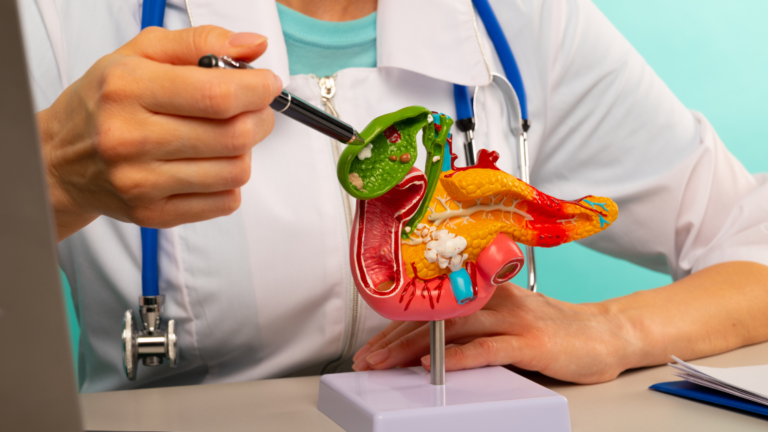Living with diabetes demands constant vigilance, and when it comes to undergoing surgeries like hernia repair, the stakes are even higher.
Greetings to all! I am Dr. Sandeep Sabnis, an experienced hernia surgeon based in the heart of Nashik, with a professional journey spanning over two decades in the field of surgery.
Today, I want to address a topic that resonates with many of my patients and, likely, numerous individuals searching online for informed guidance: Hernia Surgery for Diabetics.
Diabetes is a condition that poses unique challenges in the realm of surgery, including hernia repair.
However, with careful management and the right precautions, individuals with diabetes can undergo hernia surgery with successful outcomes. In this blog, we’ll navigate the specifics of hernia surgery for diabetic patients, highlighting why meticulous care is paramount and how my practice in Nashik is equipped to provide this specialized care.
In selecting the surgical technique and anesthesia, I lean towards minimally invasive procedures, such as laparoscopic hernia repair, which are ideally suited for diabetic patients due to their benefits of shorter recovery times and decreased infection risks.
I advocate for a gradual reintroduction of physical activity, under professional guidance, to ensure a safe and effective return to daily routines without jeopardizing the integrity of the surgical site.
The partnership between the patient, myself, and the broader medical team is crucial. Understanding the individual challenges of diabetic patients allows us to develop a comprehensive management plan that not only focuses on successful hernia repair but also promotes the patient’s long-term health and well-being.
Understanding the Intersection of Diabetes and Hernia Surgery
Diabetes affects the body’s ability to heal, making any surgical procedure a delicate balance of managing blood sugar levels while ensuring the body’s resilience to heal and fight infection.
For diabetic patients contemplating hernia surgery, understanding these intricacies is the first step toward a successful recovery.
Understanding the Risks:
Given the complexities diabetes introduces to the healing process, addressing potential infection risks and slower wound recovery is critical.
I emphasize the importance of pre-operative blood sugar control to my patients to mitigate these risks and ensure a smoother recovery path.
Pre-Operative Preparations:
I work closely with my diabetic patients before their hernia surgery to achieve and maintain optimal blood sugar levels, which may require adjustments to their medication and diet. This period also allows for open discussions regarding any concerns, where I offer advice tailored to their specific diabetic condition.
During Surgery: Vigilance Continues
Intraoperative management for diabetic patients requires a nuanced approach. Continuous monitoring of blood glucose levels during the surgery ensures that any fluctuation can be promptly addressed.
In my practice, we harness state-of-the-art monitoring technologies to keep a close eye on your blood sugar levels throughout the procedure, ensuring they remain within an optimal range.
Post-Surgery: A Critical Phase
The postoperative period for diabetic patients harbours the risk of slower wound healing and infection.
Following hernia surgery, rigorous monitoring of glucose levels continues to be a cornerstone of care.
Additionally, we advocate for early mobilization, adherence to prescribed diabetic medications, and a balanced diet to foster optimal healing.
In our practice in Nashik, we take pride in our post-operative care regimen, which includes personalized dietary recommendations, wound care instructions, and follow-up appointments.
Our aim is to not only monitor your recovery closely but also to empower you with the knowledge to manage your health effectively during this period.
The Benefits of Laparoscopic Surgery:
For diabetic patients, I often recommend laparoscopic hernia repair due to its minimally invasive nature, resulting in less pain, a reduced infection risk, and faster recovery times. My expertise in laparoscopic techniques ensures that patients receive care that is not only effective but also specifically tailored to their diabetic needs.
Post-Operative Care:
Monitoring blood sugar levels post-surgery is essential. Elevated levels can hinder healing, so sticking to a diabetes management plan is crucial. I also encourage patients to begin light physical activities as soon as safely possible, which aids in recovery and helps in managing blood sugar levels.
Nutrition and Recovery:
A balanced diet is key to healing. I advise a diet rich in proteins, vitamins, and minerals to support wound healing, with careful management of carbohydrate intake to maintain stable blood sugar levels. A tailored post-operative diet plan supports both recovery and diabetes management.
Why Dr. Sandeep Sabnis for Your Hernia Surgery?
Choosing a surgeon, especially when you have a condition like diabetes, is a decision that warrants consideration.
With over 20 years of surgical experience and a focus on delivering personalized care, my practice is dedicated to ensuring that each patient, especially those with complex medical conditions like diabetes, receives the utmost attention and expertise.
In Nashik, our facility is equipped with advanced surgical and monitoring equipment, ensuring that we remain at the forefront of medical excellence.
Our team is trained to provide comprehensive care that addresses the specific needs of diabetic patients, ensuring that from pre-operative preparation to post-operative care, you are in safe and skilled hands.
When to Seek Help:
If you are a diabetic patient considering hernia surgery, I understand the apprehensions and concerns that accompany your decision.
However, with the right preparation, vigilant intraoperative management, and meticulous post-operative care, we can navigate this journey together, toward a successful recovery and enhanced quality of life.
I caution my patients to be vigilant for signs of post-operative complications, such as increased pain, redness, swelling, or discharge from the incision site, as well as uncontrolled blood sugar levels, and to seek medical advice promptly.
In conclusion, hernia surgery for diabetics requires a comprehensive approach that includes pre-operative preparation, the application of skilled surgical techniques, and attentive post-operative care.
With these special precautions and effective diabetes management, my patients can achieve successful outcomes with minimal complications.
As a surgeon with expertise in laparoscopic procedures, I am committed to providing diabetic patients with a treatment path that prioritizes safety, efficiency, and a swift recovery.
Reach out to us today to learn more about how we can support you through your hernia surgery and help you move towards a healthier, brighter future. Let’s take this important step together.





